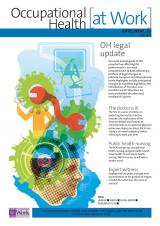April/May 2010 (vol. 06/6)
ContentsFeaturesResearch PlusCPD
Research Plus
Controlling your working patterns
According to this Cochrane review, flexible working is generally beneficial for health and wellbeing, but only where individuals rather than employers have control over the working patterns. All 10 papers meeting inclusion criteria were controlled before and- after studies rather than randomised controlled trials – thus limiting the evidence quality – and follow-up was restricted to 12 months, so longer term effects on physical or mental health could not be evaluated. The authors’ ‘tentative’ conclusions were that flexible working interventions that increase worker control and choice – such as self-scheduling or gradual/partial retirement – were generally health enhancing, whereas workplace interventions ‘motivated or dictated by organisational interests, such as fixed-term contract and involuntary part-time employment’, had equivocal or negative effects on health.
Cochrane Database of Systematic Reviews 2010; 2: article no. CD008009. DOI: 10.1002/14651858. CD008009.pub2. http://onlinelibrary.wiley.com/doi/10.1002/14651858.CD008009.pub2/abstract
Occupational Health at Work April/May 2010 (vol. 06/6) pp49



